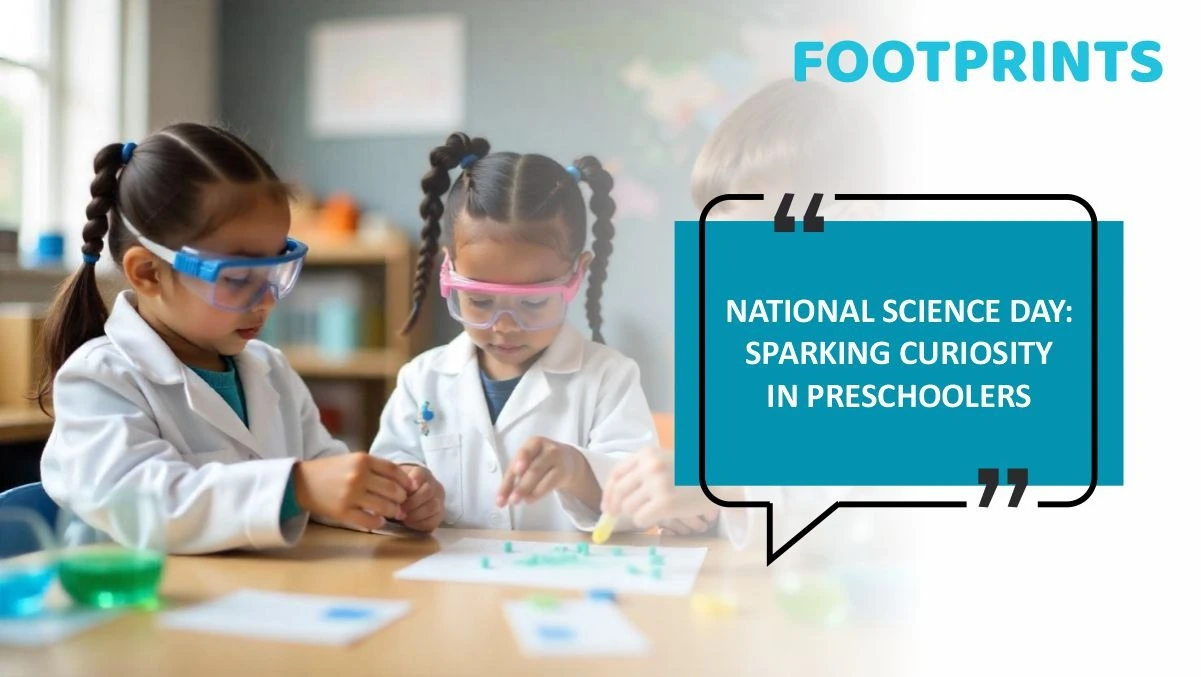
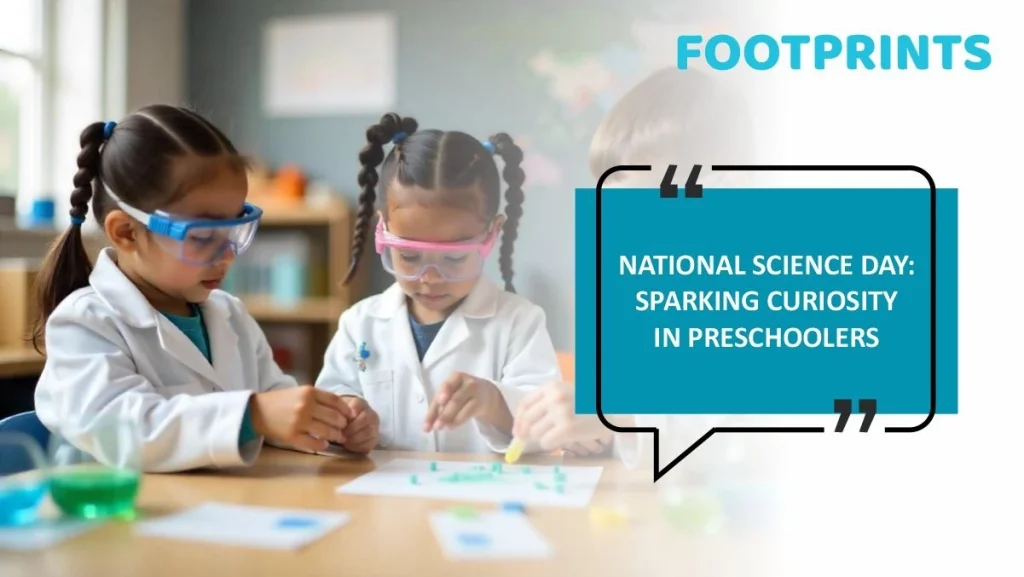
National Science Day, also known as Rashtriya Vigyan Din, is marked as a day to showcase the frontiers of science and encourage scientific curiosity. Every year, National Science Day is celebrated on February 28, the birth of the Raman Effect, by an Indian scientist, Sir C V Raman. On that day, there is an opportunity to raise appreciation of science, especially among children. It is also compelling for young children to see what they want and raise questions.
In the current article, we will discuss National Science Day’s relevance and offer interesting science games for preschoolers. Through science and wonder, let us find out how to make National Science Day a day the kids will never forget.
What is National Science Day?
National Science Day/Rashtriya Vigyan Din is an occasion to celebrate India’s science and technology achievements. The conference was organized for the first time in 1987 to commemorate the discovery of the Raman Effect by Sir C.V. Raman in 1928. Sir Raman’s pioneering research on the science of light scattering earned Sir Raman a Nobel Prize in Physics, and to this day, young scientists and engineers are stimulated by the work done by Sir Raman.
The purpose of National Science Day is not only to credit scientific advances but also to instill curiosity, innovation, and a sense of wonder in individuals of all ages about the universe of science. The regular day may be marked by a series of events, debates, or activities that inspire a scientific attitude.
National Science Day is an offshoot of World Science Day, which is an excellent occasion to let young kids enter and discover the world of science from a young age. If you teach them only a few of the most elementary scientific concepts and experiments, you can obtain their attitude of curiosity and the desire to learn.
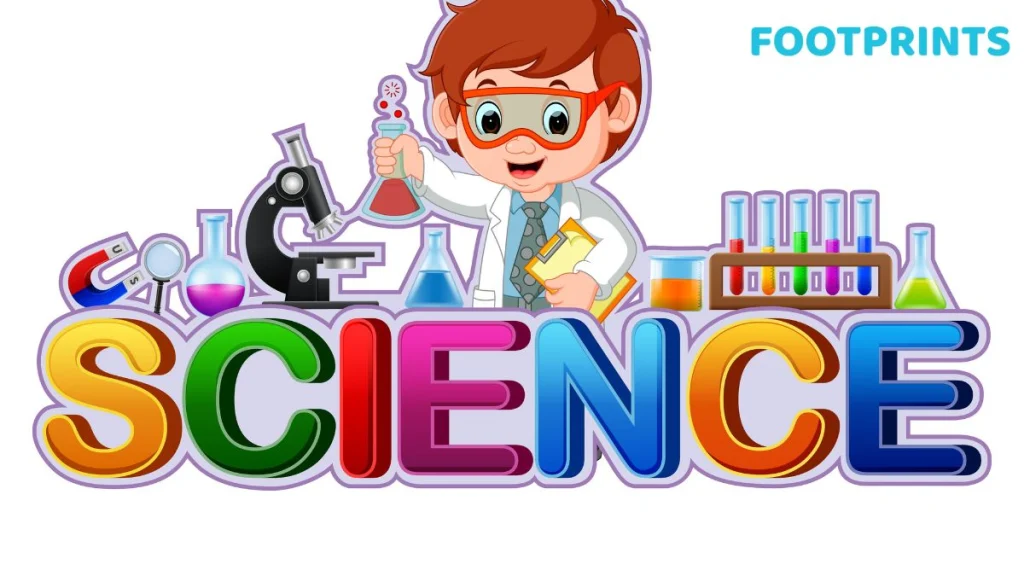
Why is National Science Day Important for Preschoolers?
National Science Day celebration is not only a day for us to appreciate the achievements of scientists but also a day for children to be introduced to the marvels of the world through science. Science Day is the perfect time to stimulate curiosity and offer students innovative and experiential learning opportunities.
The preschool stage focuses on layering a base of scientific inquiry, which will be the starting point for subsequent learning at higher levels. Here’s why National Science Day is essential for preschoolers:
1. Fostering Curiosity: Preschoolers are naturally curious. National Science Day provides the ideal chance to step from curiosity to scientific discovery. Children can also take part in light activities such as observing growing plants, trying to colour, or observing weather, etc., to get a rough idea of how science affects their daily lives.
2. Encouraging Problem-Solving: Science involves observation, exploration, and finding answers. Just allowing them to think critically and solve some simple problems while in preschool will provide an advantage that will give them a head start in developing critical thinking skills.
3. Hands-On Learning: Young children learn best when actively engaged. National Science Day may be commemorated by playing games and doing activities with preschoolers, thus providing a chance to children of preschool age to experience scientific ideas in a playful, interactive way.
4. Promoting Interest in STEM Fields: Early science teaching can greatly benefit the wider work life for science and technical work (STEM). National Science Day significantly triggers curiosity into a scientific approach and learning that grows with the child’s life span.
How is National Science Day Celebrated?
To celebrate National Science Day, various programs are implemented in schools and educational institutions in India, covering workshops, science fairs, lectures, and conferences. Many institutions further promote science fair competitions and knowledge contests in which students can showcase their potential and creativity.
There are optimal tactile experiences better suited to their younger age group, although there is evidence of learning in a geriatric population despite areas that may require special treatment. When is Science Day celebrated? It is observed each year on February 28th, providing an opportunity for preschool science to be fun and educational.
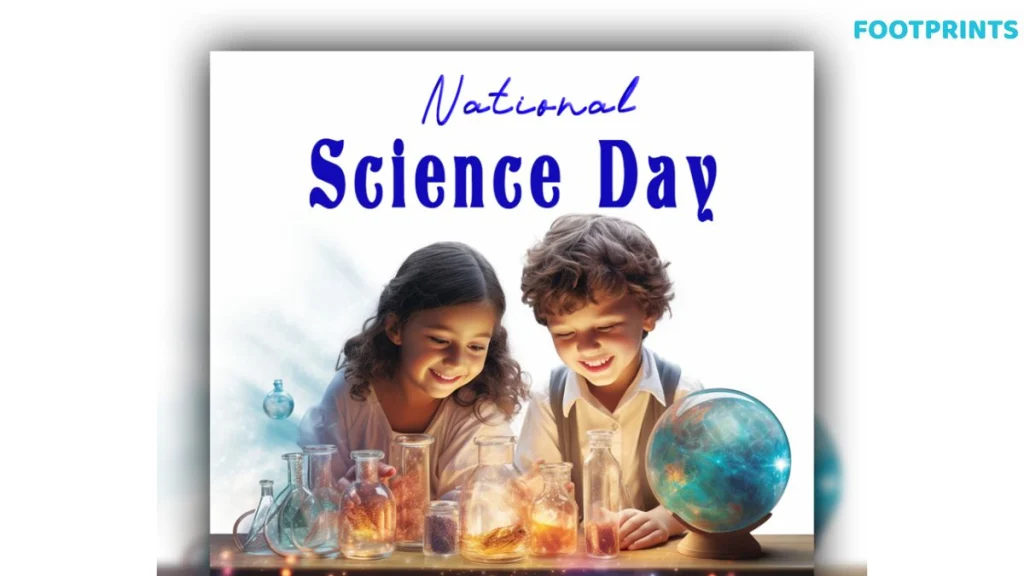
Ideas to celebrate National Science Day with children below.
1. Simple Science Experiments
When such “changes are apparent” over time, neonatal infants can be interested in everyday experiments, such as creating a volcano with baking soda and vinegar and growing crystals.
Specifically, by a simple manipulation experiment with water and food dye, the students can acquire the characteristics of liquid and how to mix the colours. Alternatively, one could try to analyze the behaviour of air when it interacts with various objects, e.g., the displacement of an inflated balloon, or make and talk about a simple paper plane from the perspective of motion and aerodynamics.
These experiments are interesting and spark a motivation to examine, question, and reflect on cause-effects in old children.
2. Exploring Nature with Science
Science isn’t confined to the classroom; it’s all around us! National Science Day should be marked with an outdoor exhibition of preschoolers in nature so that the children can become acquainted with the things around them and love the trees, animals, and insects in the wild. In biology, ecology, and seasonal transitions, Science, at this time, offers the ideal milieu in which to discuss various challenges.
Suppose you go on to include leaves, flowers, and stones. In that case, you can then subdivide to consider topics around plant growth and insect metamorphosis, as well as how the weather alters the natural world (the effect of change in the external environment). Let the children take the bait and then share their results. This leads to science and an appreciation of nature.
3. Interactive Science Games
Science games are a good way to integrate learning with play. Preschoolers can enjoy games involving the matching of objects, shape/color identification, species or plant sorting, and animal sorting. These games have been used to establish rudimentary knowledge of classifications, observation, and reasoning.
For instance, one may set up a science station with multiple components,, such as magnets, water, rocks, and leaves, and require preschoolers to make guesses about what will happen when using each item. Simple games like these promote experimentation, observation, and learning.
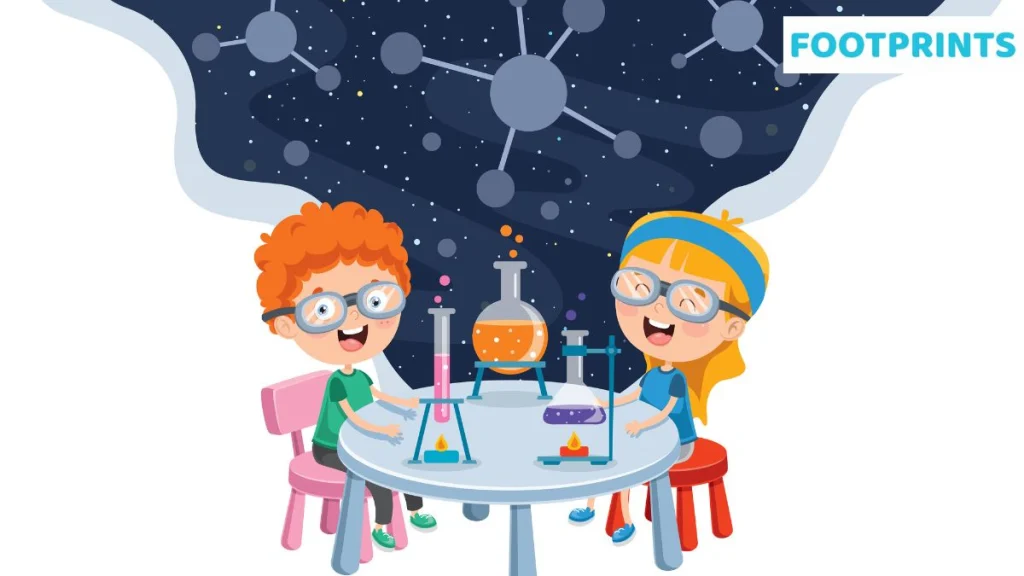
4. National Science Day Speech for Preschoolers
Although adult learners have also been found to present science fiction on National Science Day, when children contribute by introducing their science talk, this is the situation. Enable children to express themselves about what they like doing with science experiments, results, or activities. They could discuss botany, why the sky is blue, or animals inhabiting another dimension. The Meaning and message on posters enable them to speak up, give a voice, and simultaneously learn some basic scientific facts.
5. Creating Science-Themed Art
There is, moreover, an artistic perspective on the observance of National Science Day in the work of arts. Preschoolers can devise creative art projects that relate to the science they are learning, including painting the planetary system, drawing the life cycle of a butterfly, or making a very basic forest diorama.
By synthesizing art and science, preschoolers can visually and expressively narrate what they already know in a creative, imaginative manner and imaginatively revisit them in their own minds.
Conclusion
National Science Day is a time to encourage even the most novice children to explore science further. It is a good day to be curious, to explore, and to contribute to scientific discoveries that have led to a greater understanding of the world around us. Defining fun and educational activities in the celebration of National Science Day enables us to awaken an enduring love of learning in children.
Science experiments, nature trails, or art projects, whatever they may be, can give a holiday break the potential to bring preschoolers into the world of science and wonder at the things happening outside it. Remember, the goal is to make science fun and accessible so preschoolers can develop critical thinking skills and begin their lifelong journey of learning and discovery.
Usman is a seasoned Performance Marketing Professional and content writer with over 8 years of experience in the education industry. With a passion for driving results and creating compelling narratives, Usman specializes in crafting data-driven marketing strategies and insightful content that resonates with educational institutions and their audiences. His expertise in performance marketing, combined with his in-depth understanding of the education sector, allows him to bridge the gap between marketing initiatives and student engagement effectively. Whether through targeted campaigns or educational content, Usman helps brands enhance their online presence and achieve measurable growth.

